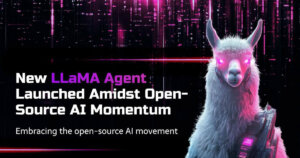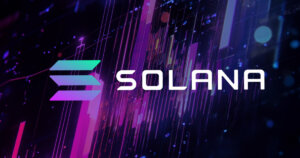Binance Reveals Pre-Alpha Demo of Decentralized Exchange & Binance Chain Amidst Listing Fee Criticism
Photo by JC Gellidon on Unsplash
Cryptocurrency exchange giant Binance has unveiled a pre-alpha demonstration of its own decentralized exchange in a move that foreshadows the future of the crypto trading ecosystem.
First announced in May, the Binance Decentralized Exchange (DEX) is part of a greater project that will see the exchange platform launch a tailored blockchain, called “Binance Chain.” The preview of Binance’s DEX represents a significant milestone in the crypto market, where centralized exchanges are frequently compromised by hacks and fraud.
A first (rough, pre-alpha) demo of the Binance Decentralized Exchange (DEX), showing issuing, listing and trading of tokens. All cli based, no GUI yet. A small step for #BinanceChain, a big step for #binance. https://t.co/2aXkR0gclP
— CZ (not giving crypto away) (@cz_binance) August 9, 2018
Binance DEX Development Powers Ahead
In a statement issued via Twitter, Binance CEO Changpeng Zhao noted that, while there isn’t an official release deadline for the DEX project, the development team has delivered a pre-alpha demo ahead of schedule:
“I thought this would happen one to two months later or more, but the team delivered early. It is very much still in early pre-stage development, so this is a casual early pre-alpha demo.”
Although blockchain technology is driven by decentralization, the current market paradigm is heavily reliant on centralized exchanges that represent “soft spots” in the crypto ecosystem, making them a prime target for hacks. In addition to allowing hackers to capture large amounts of capital from unsecured platforms, centralized exchanges also suffer from opaque liquidity management and manipulation accusations.
The Binance DEX could potentially offer greater transparency than centralized alternatives. Earlier announcements, for example, outline a decentralized platform operating on a public blockchain, which would allow market participants to trade without exposing crypto assets to exchange hacks:
“Binance Chain will focus on performance, ease-of-use and liquidity. Binance Coin (BNB) will be upgraded to exist on its own blockchain mainnet, becoming a native coin. At the same time, Binance will transition from being a company to a community.”
Binance CEO Expects DEXchanges and Centralized Exchanges to Coexist
Replying to comments via Twitter, Zhao stated that he expects the centralized Binance platform to coexist with Binance DEX for “some time,” stating that the market will decide the ultimate future of the Binance platform.
However, the cryptocurrency community was quick to throw criticism at the Binance CEO, referencing the alleged 400 BTC listing fee charged by the platform revealed by Christopher Franko, co-founder of blockchain platform Expanse.
Just got a new @binance listing quote. 400 BTC
— Christopher Franko ? (@FrankoCurrency) August 8, 2018
In an apparent response to Franko, Zhao tweeted that the crypto community should remain vigilant against potential scams:
Beware of scammers pretending to be Binance Listing team. Spoofing a “from” email address is easy. Due to spam, we ignore most unsolicited emails. If a project team can't protect themselves from scammers, it’s a bad idea to raise money from investors. https://t.co/oV1l4HGsbU
— CZ (not giving crypto away) (@cz_binance) August 9, 2018
Although Franko did not publish definitive evidence that Binance quoted Expanse a 400 BTC listing fee, he did provide a screenshot showing the listing quote came from a Binance domain:
So he is trying to say it was a spoofed email. But um.. it came from https://t.co/bTYQp6cgHK so either…
1. He is lying to save face.
2. someone has hacked their servers and sending emails out from it.
3. he has a rogue employeeI literally have nothing to gain from this.. pic.twitter.com/ubfyuxREEs
— Christopher Franko ? (@FrankoCurrency) August 9, 2018
The purported exchange between Franko and the Binance listing team highlights an important difference between exchange decentralization and the decentralization of governance—a decentralized exchange may provide users with the ability to trade in a decentralized manner, but decentralized trading does not necessitate that listing decisions are made in a distributed manner.
The issues with token listings on decentralized exchanges are highlighted by Vitalik Buterin’s recent “7 Hard Questions for the Blockchain World,” with the Ethereum co-founder noting that blockchain governance, as it exists today, is virtually defenseless against centralized manipulation.




 CoinGlass
CoinGlass 


 CryptoQuant
CryptoQuant 











































































